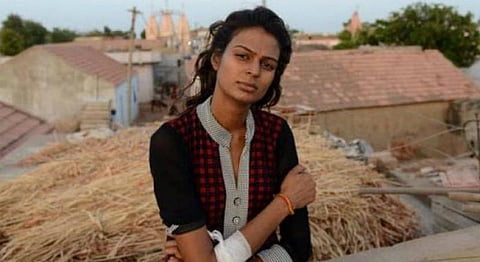
- HOMEGROWN WORLD
- #HGCREATORS
- #HGEXPLORE
- #HGVOICES
- #HGSHOP
- CAREERS
- ABOUT US
- CONTACT US

Contemporary or modern slavery, as it is called, continues to thrive in India in various forms, including bonded labour over generations within a family, sex trafficking, forced begging and child labour. Though Article 24 of the Indian constitution has prohibited the ‘hazardous’ employment of children, as well as the enactment of the Child Labour Prohibition and Regulation Act, 1986, the International Labour Organisation (ILO) puts the number of children, between the ages of five and fourteen, working as domestic labourers and in slave-like manual labour at close to 12 million. These would just be the reported cases, the ground reality is far worse.
Across the country millions of children are put to work, instead of being sent to school, in harmful work environments, such as mining factories, beedi manufacturers, firework factories, construction and bangle-making. India’s rapidly growing population and poverty go hand-in-hand to contribute towards the increasing number of children put to work, becoming earning members of their low-income families with many mouths to feed, instead of spending their time in school, studying, and just being children. We’re all aware of the prevalence of child labour in the country, we see it on the streets, in homes and across various institutions but many prefer to turn a blind eye.
While others comment along the lines of, “it’s better for them, we’ve given them a job,” very few of us actively work towards ending the practice. 22-year-old Jharna Joshi is among the handful individuals, apart from dedicated NGOs, who put herself at risk when she saw buses carting off numerous children to a nearby factory. A college student pursuing a Bachelors of Business Administration, Jharna was on vacation at her cousin’s house in Morbi, Gujarat, at the time when she noticed the buses. Speaking to the Times Of India (TOI), she said, “I came to my cousin’s house in Morbi in the first week of April to spend my vacation. One morning, I saw children being transported in buses. These were not school buses so I followed the bus and found that they were being taken to a factory.” She took it upon herself to investigate the situation and enquire about the ages of the children and the condition in which they worked. She went undercover, applied for a position at the Sonaki ceramics unit’s management department informing them that she was a student of management. With no vacancy in the department, she was instead put to work pasting and designing cups and saucers.
“In 15 days, I saw most of these children were below 18 years and they were forced to work in hostile conditions. Many were even made to work in high temperature areas like furnaces. Even in such scorching summer, they were not even given cold water to drink,” she stated to TOI. The children worked long hours, from 8 AM to 6 PM, and were not even allowed to leave the premise and go outside their designated working areas. The factory belonged to one of the district’s biggest ceramic units, here she accessed the official records of the workers and once she had herself confirmed that the workers were below the age of 18—some were even younger than 14 years old—she alerted local authorities whose response was incredibly underwhelming for Jharna. Dissatisfied, she took up the issue with higher levels of authority; “I wrote to the Chief Minister’s office and personally visited Gandhinagar on May 24. Finally, I was assured that the action would be taken on Friday,” she added.
It was because of Jharnas tireless efforts that a joint raid by officials of the police department, labour and employment department, factory inspector and child protection officer was conducted and 111 children were rescued, of whom 100 were girls. Officials have termed this as the biggest rescues of child workers in Saurashtra, a prime destination for several industrial factories. “The entire credit to this rescue operation goes to Jharna who should be honoured. It takes immense courage to undertake such a covert operation,” stated Kanaksingh Jhala, social defence officer, Rajkot, and we couldn’t agree more. In fact, Jharna was even attacked by two men when the raid was conducted and the children were being removed from the compound, leaving her with several injuries. “I will continue to fight until the ceramic unit owners are behind bars. They used to make children work in such sub-human conditions,” she said to Deccan Chronicle.
What Jharna’s brave endeavour proves is that one person can really make a big difference for so many others, all that is needed is the courage and initiative to right the wrongs. We look to law-enforcers and people in positions of authority to slam down on law-breakers but it’s also important to take the steps ourselves instead of ignoring what we see, regardless of the corruption that’s seeped through many governmental departments. There are people, like Jharna, who are tirelessly working against all odds to set things right and provide education and a real childhood for those kids who in several circumstances are forced to grow up too soon.
